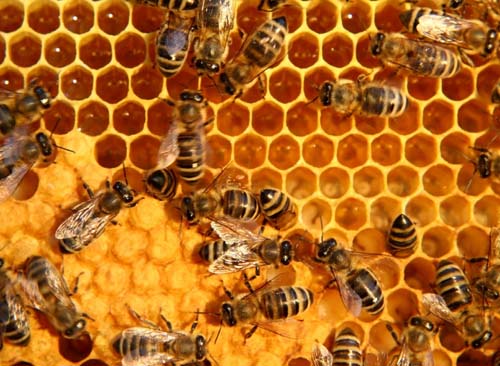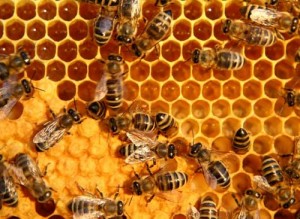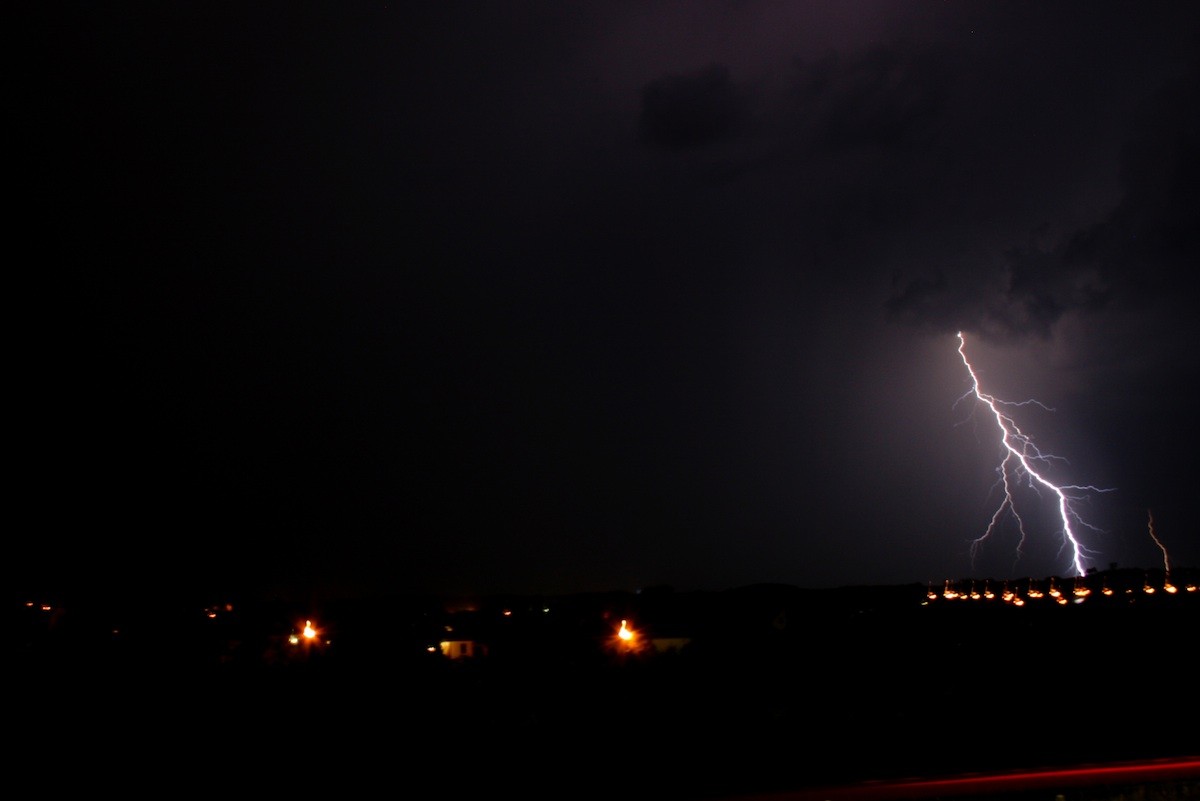Unlike bees and ants—with their near-miraculous ability to coordinate complex activities in a self-organizing way—humans don’t exhibit any discernible signs of swarm intelligence. In fact, as a species we often work against our long-term survival, launching wars for reasons that leave historians scratching their heads, polluting the air and water that keep us alive, and creating intricate mythologies to guide our actions, while casting off science as irrelevant. Any evidence that we may be learning something useful over thousands of years of civilization and passing it along to our progreny is put to serious question by a marked refusal to deal with matters of global import: worldwide climate disruption, overpopulation, resource depletion, and habitat destruction. We could probably learn some very helpful lessons from the bees except that bee populations are suffering from colony collapse disorder.
In the absence of swarm intelligence, books have become a dependable way for humans to convey knowledge and experience and, as a logical extension, the consolidated, recorded intelligence of our species. Libraries serve as concentrators of vast quantities of information, but they’re also vulnerable to human folly. The Ancient Library of Alexandria, the primary repository of world knowledge in the second century BC, suffered several waves of destruction between 48 BC and AD 642 until most of the laboriously inscribed scrolls and parchments were reduced to dust and cinders.
Digital communication has changed the rules of the game dramatically. Information and ideas can be transmitted with a speed and ferocity that dances on the outer fringes of swarm intelligence. One copy of an ebook can be transmitted to 1000 readers with the click of a computer key. That one master copy can be duplicated endlessly, to reach 10,000 or 10,000,000 readers. Though I’m based in Vermont, a book I publish to any of the online bookstores can be read by someone in Scandinavia or Japan or Australia a few minutes after it’s released. Much of the world’s literature is freely available to anyone with a PC, iPhone, Kindle, Sony Reader, or other mobile computing device through Project Gutenberg. For authors, the potential audience is global and immediate—without the drawbacks of printing, and packaging. No trees are felled in the production, no toxic solvents are used to clean printing presses, no gasoline is burned in multiple truck engines transporting cartons of books to sales outlets.
This isn’t to imply that electronic publishing and ebooks don’t have their own share of toxic byproducts and polluting technologies underlying their existence. Most of our 21st century communication technologies are mired in manufacturing processes that are careless, toxic, and unsustainable. On the other hand, you can say the same about almost every aspect of our lives in this increasingly profligate time in history—from growing food to getting to work each day to handling the waste products of our cities and towns.
We’re not bees, we lack swarm intelligence, so we need to get our messages out a sentence at a time, a book or an article at a time, in the hopes of finding intelligent solutions to the problems of our age. Digital communication promises to democratize the act publishing, the means by which writers can find an audience and readers can find a voice to trust. Some of the same forces with the same mindsets that burned down the Ancient Library of Alexandria are still active and still dangerous. The way to defeat them is to think deeply, experience the world fully, communicate your knowledge, and find ways to lighten your footprints on the planet.
In the future pages of Lightspeed Illuminati, we’ll try to shine some light to guide your journey.






